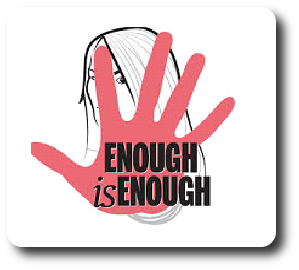 My work brings me into contact with parents who are developing their NVR skills, and sometimes I am privileged to stay with these families for a long period of time, helping them embed non-violence in their world, coaching them in exploring ways to de-escalate and remain peaceful – facing the day-to-day challenges that their young person presents and the emotional toll it takes on the whole family.
My work brings me into contact with parents who are developing their NVR skills, and sometimes I am privileged to stay with these families for a long period of time, helping them embed non-violence in their world, coaching them in exploring ways to de-escalate and remain peaceful – facing the day-to-day challenges that their young person presents and the emotional toll it takes on the whole family.
I came in contact with a parent whom I consider very skilled in her NVR practice; we spoke about a recent act of aggression displayed by her 15 year old birth child. This parent has been using NVR for 5 years with great success in reducing conflict and violence in the family home and regaining a presence which had been lost. She shared with me an incident which had escalated until the young person verbally exploded into a rage, and damaged the property and smashed her laptop. She went on to tell me how she remained present in the moment, but despite her perseverance in keeping calm the young person escalated into a rage. Then her partner arrived home and shouted at the young person, which led to the “dropping of the laptop”.
As we explored and unpicked the incident carefully and thoughtfully, I asked the parent “did you consider leaving the house just for a short period”? She smiled and said she didn’t, but on reflection she predicted the outcome could have been so different.
I thought about the situation she had found herself in. The young person had woken late in the day from a long, much needed sleep, and the first thing the parent says is “you need to shower today”. The young person begins to show signs of irritation and displays harmful behaviours towards the sibling, then moves on quickly to property damage (pouring juice over the carpet), followed with verbal abuse, taking a mobile phone and refusing to give it back and makes constant put downs and comments to the parent who is calmly trying to de-escalate the situation.
She was determination to sit it out. She showed courage to sit with the situation. Demonstrated her ability to raise her presence and be there for the young person until the end.
I ask when is “enough enough”????
How might this have looked if she had left the home for a short period? What if she had said “I am not going to tolerate this behaviour”. If she had made her exit with the sibling (to keep that child safe) and sat in her car, walked up the road, waited for support to arrive. What might the young person have said or done? What behaviours might not have occurred? Would the laptop have been smashed?
The parent shared with me that the young person seemed intent on belittling her, goading her to escalate, hoping to involve her in an argument and continue the abuse. If she had made a stand and left the house, what might her return to the family home have looked and felt like? What if she had allowed sufficient time and space between them, to process what had happened? Would the young person have calmed down? How might it have looked if she had made a kind gesture to the young person, brought back a hot chocolate, sweet or some other treat – or offered a hug?
I felt the parent stuck fast and showed determination to sit out the abuse despite things not calming down. In many ways this is admirable and showed great strength, and in NVR, this is how we coach parents to grow such determination and strength (usually with support) – to become disobedient to the child’s unreasonable demands. However, in some instances we may say “enough is enough”: I will not tolerate this behaviour and will continue to keep myself and others in the home safe. I will utilise my support networks and deliver a message of concern when the iron is cold.
As practitioners, we encourage parents to find time to plan their interactions with and responses to the young person, so they become aware of the patterns and triggers of escalation – allowing space to enter between the young person and carer to create a new and deeper relationship, practicing silence and saying less in the moment, making choices from a position of strength.

Rachael Aylmer
Specialist Parenting Practitioner
Associate Director PartnershipProjects
Rachael has worked with families and young people as a behaviour support specialist for twenty years. Rachael has pioneered the integration of NVR and 12-step principles in her work with parents recovering from addiction, and has supported PartnershipProjects by providing training and supervision on the NVR Certificate Course. Read more…
